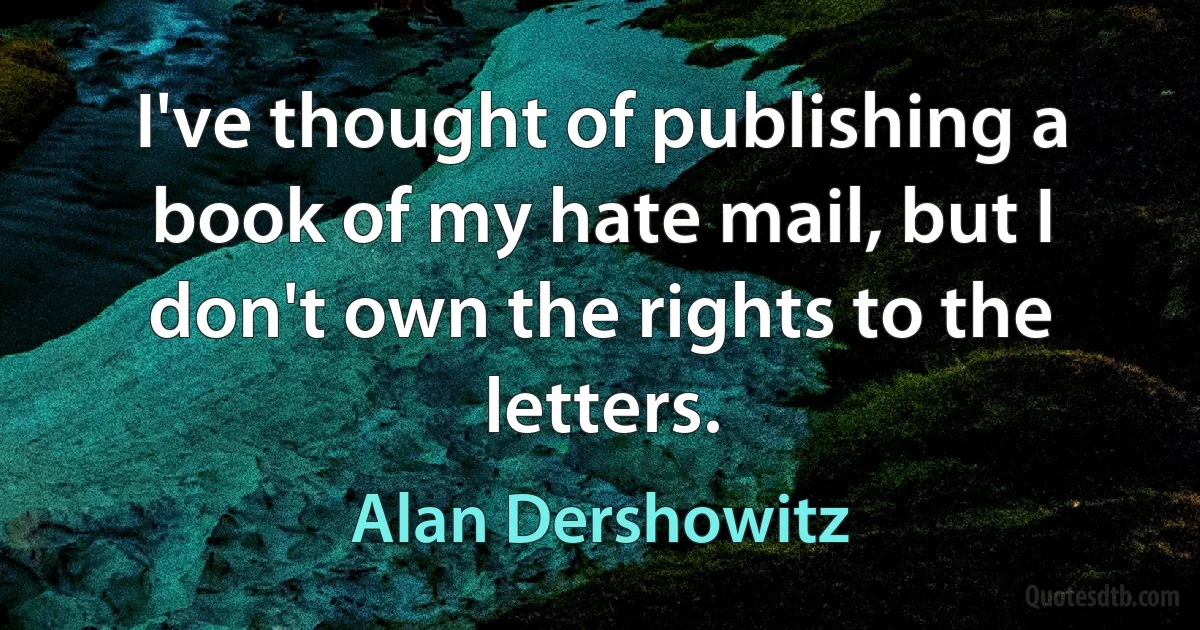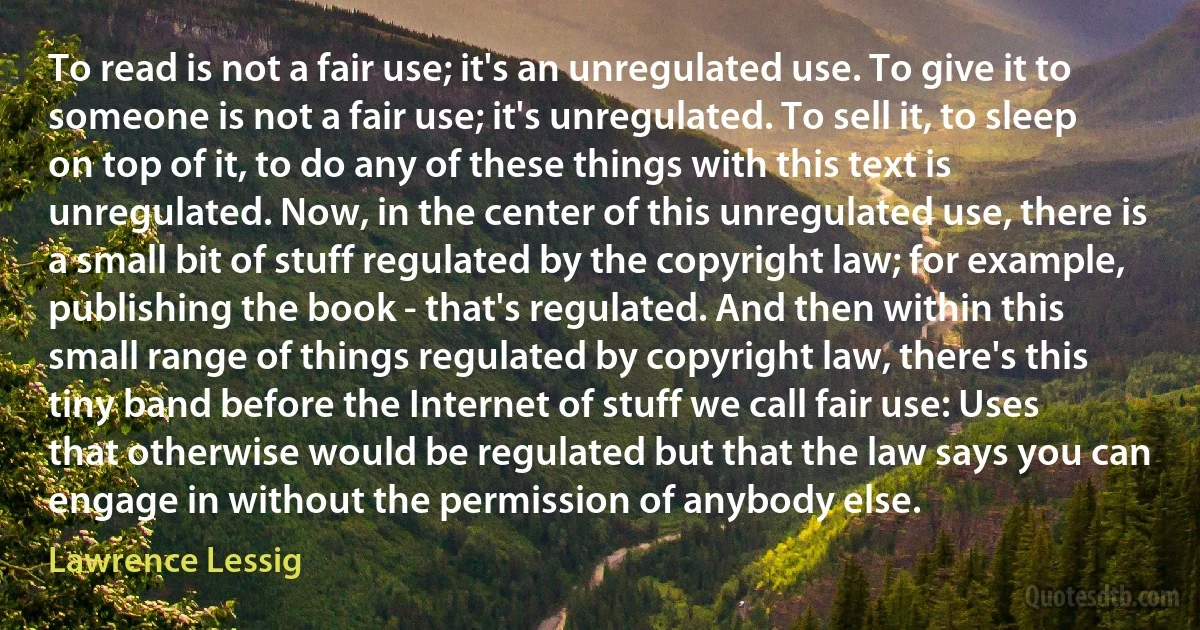Publishing Quotes - page 9
In life you must often choose between getting a job done or getting credit for it. In science, the most important thing is not the ideas you have but the decision which ones you choose to pursue. If you have an idea and are not doing anything with it, why spoil someone else's fun by publishing it?

Leó Szilárd
I don't think anyone is ever writing so that you can throw it away. You're always writing it to be something. Later, you decide whether it'll ever see the light of day. But at the moment of its writing, it's always meant to be something. So, to me, there's no practicing; there's only editing and publishing or not publishing.

Steve Martin
Since some ignorant dupes of these Marxists denounce as "McCarthyist” anyone who points out their ideological inspiration, it deserves to be emphasized that "eminent historians” like Romila Thapar, R. S. Sharma and Irfan Habib are certified as Marxists in standard Marxist sources like Tom Bottomore's Dictionary of Marxist Thought. During the official historians' Ayodhya temple/mosque dispute in 1991, the pro-mosque team's argumentation and several other anti-temple pamphlets were published by the People's Publishing House, a Communist Party outfit. One of the recent textbook innovations most furiously denounced as "saffronization” was the truism that Lenin's armed seizing of power in October/November 1917 was a "coup d'état”. And in early 2003, while they were unchaining all their devils against glasnost, the Marxists ruling West Bengal deleted from a textbook a passage in which Mahatma Gandhi's biographer Louis Fischer called Stalin "at least as ruthless as Hitler.”.

Koenraad Elst
In 1993 Osama bin Laden began speaking in detail to Muslim and Western journalists about his beliefs, goals, and intentions, and began publishing commentaries on these matters in the media.... While bin Laden's words have not been a torrent, they are plentiful, carefully chosen, plainly spoken, and precise. He has set out the Muslim world's problems as he sees them; determined that they are caused by the United States; explained why they must be remedied; and outlined how he will try to do so. Seldom in America's history has an enemy laid out so clearly the basis for the war he is waging against it.

Michael Scheuer
When I was young, there was an amazing publication called The Whole Earth Catalog, which was one of the bibles of my generation. It was created by a fellow named Stewart Brand not far from here in Menlo Park, and he brought it to life with his poetic touch. This was in the late 1960's, before personal computers and desktop publishing, so it was all made with typewriters, scissors, and Polaroid cameras. It was sort of like Google in paperback form, 35 years before Google came along: it was idealistic, and overflowing with neat tools and great notions. Stewart and his team put out several issues of The Whole Earth Catalog, and then when it had run its course, they put out a final issue. It was the mid-1970s, and I was your age. On the back cover of their final issue was a photograph of an early morning country road, the kind you might find yourself hitchhiking on if you were so adventurous. Beneath it were the words: "Stay Hungry. Stay Foolish."

Steve Jobs
Nobody ever wrote so well so fast as Jim. One year he wrote, and we published, nine novels. It was an obsession. Back in 1941, his father had been in an asylum in Oklahoma City, begging Jim to get him out. Jim needed money to get him out, so he said to his father, "Give me a month, and I'll raise the money." His father brightened, because Jim never went back on his word. Jim took a bus to New York City and went door to door to the publishing houses, asking for money for a hotel room, a rented typewriter and meals so he could write a novel. Finally, at Modern Age, they took a chance, and in 10 days he wrote a novel. But things being what they are in publishing, it was a month plus one day before Jim got his advance. The same day, a telegram arrived. His father had committed suicide, ripping the excelsior out of his mattress and stuffing it down his throat. When Jim would drink he would sometimes cry and say, "Why couldn't he have waited another day? Didn't he trust me?"

Arnold Hano
"This book is not a biography; it is the confession of every man who struggles. In publishing it I have fulfilled my duty, the duty of a person who struggled much, was embittered in his life,
and had many hopes. I am certain that
every free man who reads this book, so filled as it
is with love, will more than ever before, love
Christ.

Nikos Kazantzakis
We are at an extraordinary moment in human history: never before has the possibility of true democracy been so close to realisation. At the cost of publishing and duplication has dropped to near zero, a truly free press, and a truly informed public, becomes a reality. A new Information Enlightment is dawning where knowledge flows freely, beyond national boundaries. Technology is breaking down traditional social barriers of status, class, power, wealth and geography, replacing them with an ethos of collaboration and transparency. In this new Enlightenment it isn't just scientific truths that are the goal, but discovering truths about the way we live, about politics and power.

Heather Brooke



